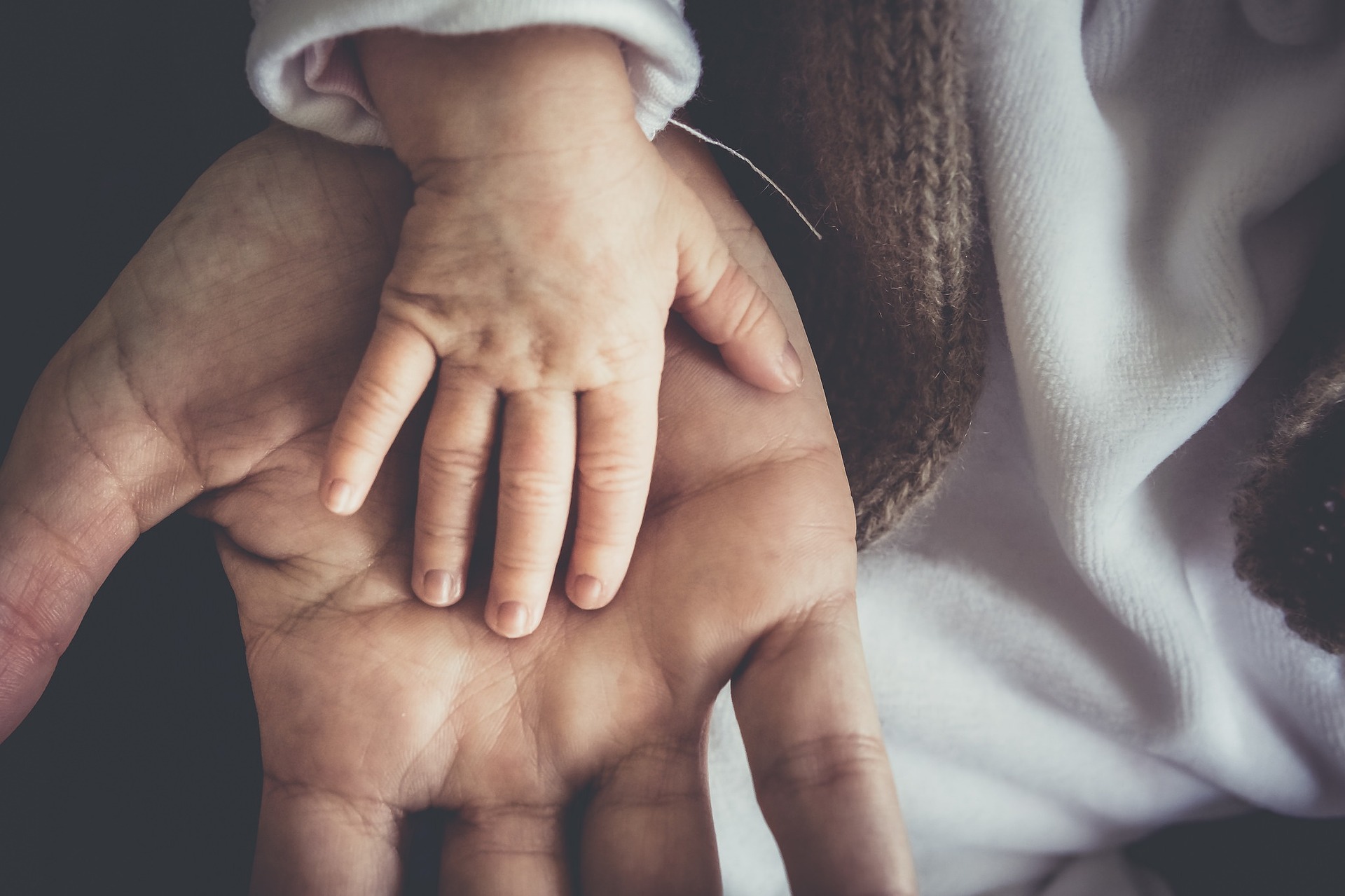A Therapist’s Journey into Compassion
/Written by: Sarah Rees
(re-blogged with permission from author and #365daysofcompassion where it was originally published: https://365daysofcompassion.wordpress.com/ )
Image via UnSplash
My compassion journey started in 2013 when I completed a 3-day introduction into Compassion Focused Therapy, a training course led by Dr Mary Welford.
At the time, I was a CBT therapist in the NHS. When I originally qualified, I thought I’d gained all the psychological tools I’d need for this role, but I had a lot to learn.
Mary’s approach was so different. She talked about putting your pen down and being fully present with your client in every session. Well, I was used to having piles of documentation to complete for each client, so while this seems obvious now, at the time it was a strange concept, I’m saddened to say.
Although it was never explicitly stated during my training, over the years I’d learned it was important to have clear boundaries in order to appear professional. While Mary is very professional, she was also very authentic. She modelled the common humanity that is so important in compassion. We are all exactly the same and struggling with the same things. Mary seemed ok with who she was and her stuff. She didn’t overshare, but she was her true self at all times.
It struck me that there wasn’t much of a divide between who she was as herself and who she was as a therapist. When we’re expecting people to share their innermost thoughts and feelings in a therapy session, it’s very unfair if they don’t get a sense of who we are as a person. Of course, this needs to be carefully nurtured with a supervisor.
Looking back, I think I had two personas at the time and I was conscious of keeping very firm professional boundaries. I’d never questioned this before, but Mary shone a light on a new way to deliver therapy from the inside out. Once I’d become aware of this approach, I couldn’t look back.
Following this training, I decided to undergo a course of personal therapy. As you do, I researched every therapist within 50 miles and ended up with a single therapist I thought was suitable for my specific needs.
I got in touch, saying I’d only need 4 sessions (as I have it all together and this is basically a token gesture of self-exploration). The therapist would only allow me to book 16 sessions and there was a wait. She possibly wanted to get rid of me!
I can’t tell you how nervous I was before my first session. I developed a new respect for anyone who even makes it see a therapist in the first place. The therapy room was meant to be my comfort zone, but I was sat in the wrong chair.
Going through my story was incredibly hard. I was turning toward difficulty. Without realising it, I’d spent many years trying to turn away and avoid these feelings. I felt very exposed and ashamed. I felt angry and judgemental towards the therapist too. I really wanted to maintain the avoidance around my story.
Despite the discomfort I felt, going through my story with someone else was ultimately very validating. Her reaction to me was the most important part of the process. It helped me see that certain things were not right. Years later, I was still trying to fix things and change people around me that were never going to change.
At times, I was shocked she didn’t agree with me even though I was a paying customer, but this challenged me to reflect and consider other angles. Her compassion for my story helped me develop self-compassion. With this compassion, I was then able to think about what I needed. Avoidance, anger and blocking your story means you can’t care for the pain and work through it.
Ultimately, sharing my story helped me develop a compassionate narrative for my experiences. It helped me understand why I am how I am, that it’s not my fault, but it is my responsibility to shape and cultivate my future direction. It made me more aware of why I’m motivated in certain directions at times.
For me, personal therapy was an important first step in developing compassion and self-compassion. It helped me process things that were difficult, and it taught me what it’s like and how it feels to be in the other seat as a client. It taught me how hard it is to turn towards our own pain and difficulty, but also how doing this helps us understand and develop the motivation to alleviate pain.
After therapy, I made changes to my life, mostly in the way I began to accept certain things and stopped fighting others. I let stuff go. Instead of my childhood being something I’m ashamed of, I’m more settled with it now.
The divide between who I am professionally and personally has narrowed and I now work on practicing from a place of common humanity. We all have the same tricky brains, the same hopes and desires, and we have to work on cultivating our best selves.
I later went on to train with Professor Paul Gilbert at Derby University. I learned as much personally as I did professionally.
Part of my story is that when I was 13 and my little brother was 10, my father was killed suddenly in a car accident. He was 40 years old and my mum was 38. When you lose one parent like this, you often lose both because of the grief the other parent must navigate. My mum had never been on her own and we had recently moved from North Wales to Manchester, so we had no-one around us.
Shortly after my dad’s death, my Mum met someone else. I can now see this as understandable, but at the time it was far removed from where I was. I rebelled and became fiercely independent with a drive system that was, and still can be, off the charts.
After a number of horrible years, I left home at 18, working as many hours as I could to keep myself afloat. This drive has been a good support system, but it’s also meant that I’ve missed out on many of the softer things I would have liked in my life.
Developing compassion has allowed me to recognise this and ensure I have anchors in my life to slow me down and let softer things in.
I have a mindfulness practice which I tussled with for a number of years, but now adore. Alongside this, I do yoga every week to re-connect with my body and ground me in the moment. Having dogs is a big love of my life. The fact I have to walk them every day and play and be silly ensures I access and build my internal soothing system.
While I’ve always struggled with the popular compassion practice of writing compassionate letters to myself, writing has become a big part of my self-care. I journal most days, noting down whatever is in my mind. I ensure I always include gratitude aspects, and if I’m struggling it reminds me to think about how I would support a friend in this situation or to ask myself what is best for my well-being. Writing has become a way of checking in with myself and I’ve recently developed a journal to help others who may be drawn to writing too.
Self-care and nurturing myself is something I now prioritise. I have a few nights a week where I enjoy a lovely candlelit Epsom salt bath and an early night. As a therapist, my mind is the tool I use for work, so caring for me ensures I’m in the right place for others. I need to practice what I preach, so I can help people with the blocks they’ll face.
Connection with others is something I can easily neglect, so I now work hard to maintain good friendships. I have two close friends who are hugely compassionate and have seen me through some serious ups and downs. They’ve seen the good, the bad, and the ugly of me,and I love them to pieces. It would be easy for me to put work first and find I don’t have enough time for our Sunday brunches and evening glasses of wine, but I prioritise the lovely stuff in my life as much as my career, even though being a workaholic is my comfort zone.
I have to keep overworking in check because I can easily burn myself out. If I do overdo it, I notice myself feeling angry and then resentment seeps in. Journaling has helped me spot this pattern, so I’m now more open to recognising these as messengers to slow down.
Don’t get me wrong, I’m not doing all of this religiously. At times of stress and difficulty, I want to have a glass of wine and throw my face into a chocolate cake! Our mind is truly tricky and the more we struggle, the harder it is to self-care, and that’s ok.
I have a clear sense of my compassionate self that I want to cultivate. I don’t think I’ll ever reach it fully, but life’s a journey, not a destination as they say. Me at my best is relaxed and accepting, living in the moment with the wisdom to care for others and myself, and to know when to stop.
I haven’t got it all sorted and I’m a work in progress, but I know how to support myself during my compassion journey and I’m motivated to improve my wellbeing.
Sarah is a very experienced CBT therapist based in Wilmslow, in the UK. She has recently written and published The CBT Journal, a journal developed using CBT techniques, to help with the daily habit of writing about experiences and recording gratitude. Sarah is an active member of the BABCP community and regularly writes her own blog available from her website https://sarahdrees.co.uk/.







